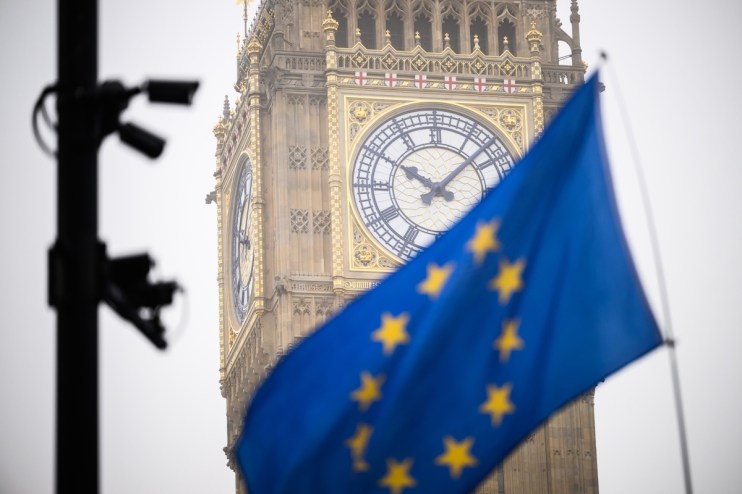General Election 2024: Business group calls for closer post-Brexit ties with EU

A leading business group has called on the next government to forge closer ties with the European Union (EU) to help boost trade and lift growth.
In a five-point manifesto, the British Chambers of Commerce (BCC) said “the government must negotiate improved UK trading terms with our largest trading partner“.
The lobby group suggested that there should be “close alignment” on regulations that impact the UK’s global trade, such as manufactured goods.
The UK officially left the EU in 2021 when the Trade and Cooperation Agreement came into force. Although the agreement guaranteed tariff free trade, it did not prevent non-tariff barriers from being introduced, many of which have impacted trade.
According to the Office for Budget Responsibility (OBR), trade intensity across the board has fallen by 1.7 per cent compared with 2019 whereas the G7 average has increased by 1.9 per cent.
Goods exports in particular have been weak, under-performing the G7 average by 15 per cent since 2020. Services exports have held up better, but restrictions on trade with the EU mean there are still headwinds compared to a decade ago.
Shevaun Haviland, Director General of the BCC said: “The companies we represent are the drivers of economic growth and the employers of millions of people. They need to know that politicians have got their back”.
“The EU is the UK’s biggest market, so we urgently need to get a better trading relationship with our closest neighbour. It’s not about rewriting the referendum result, it’s about cutting red-tape and promoting trade,” she continued.
Labour has pledged to improve relations with the EU, but Starmer has dropped his ambition of renegotiating the Brexit deal when it comes up for review in 2025. This came after EU officials suggested there was “no appetite” to reassess the relationship.
The BCC also argued that a new government needed to introduce an industrial strategy with green innovation at its heart.
“This should provide strong fiscal incentives and green skills, to enable technologies such as Carbon Capture Usage and Storage and Sustainable Aviation Fuel (SAF) to grow,” the BCC said.